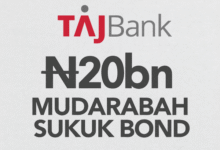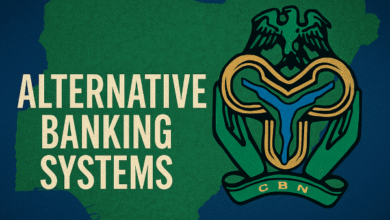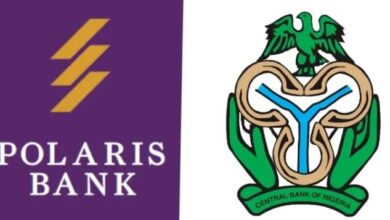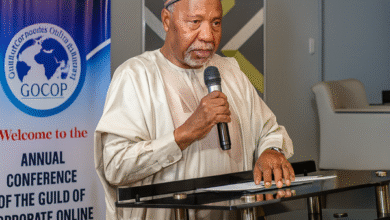The Business of Doing Good: Air Peace rescues 78 Trafficked Nigerian Women
In a moment that reinforced the enduring power of compassion in corporate Nigeria, Air Peace Limited, Nigeria’s largest carrier, took yet another extraordinary step beyond the bounds of aviation last week. In a mission that was as humanitarian as it was symbolic, 78 Nigerian women who had been trafficked to Côte d’Ivoire under the guise of employment were flown back home — not with fanfare, but with the dignity and care they were long denied.
At the heart of this gesture is Dr. Allen Ifechukwu Onyema, the Founder and Chairman of Air Peace, whose consistent intervention in national crises continues to blur the line between business and benevolence. In his own words, “Human trafficking is a blight on our shared humanity… we are not just flying aircraft, we are about lifting lives.”
These are not empty slogans. They echo a corporate culture forged in empathy and a deep, unwavering belief in the dignity of every Nigerian life — regardless of status, misfortune, or mistake.
THE HUMAN COST OF TRAFFICKING — AND THE HOPE OF RETURN
The women, many of whom were lured with false promises of jobs abroad, found themselves trapped in the exploitative labyrinth of transnational trafficking — a billion-dollar criminal industry that preys on economic desperation. For many Nigerians, particularly women, the allure of foreign jobs often masks the brutal realities of domestic servitude, sex trafficking, and forced labour.
But on Friday, May 10, 2025, that narrative was rewritten — at least for 78 women — as Air Peace’s Boeing 737 with registration 5N-BQV departed Lagos at 2:14 p.m., touched down in Abidjan, and returned by 10:46 p.m. with the rescued citizens onboard.
The mission was carried out free of charge, underscoring Air Peace’s commitment not just to commerce, but to conscience. And this wasn’t a solo act. It was achieved in close partnership with the Office of the Chargée d’Affaires of the Nigerian Embassy in Abidjan and the Nigerian community in Côte d’Ivoire — a coalition that represents how government, community, and business can collaborate for good.
ONYEMA: THE FACE OF CORPORATE CONSCIENCE IN NIGERIA
Dr. Onyema’s track record in humanitarian interventions reads like a chronicle of modern Nigerian crises. In 2019, he evacuated over 500 Nigerians from South Africa during xenophobic attacks. In 2020, amid global COVID-19 lockdowns, his airline repatriated stranded Nigerians from across the globe. In 2022, Air Peace flew Nigerians out of war-torn Ukraine. And in May 2023, it evacuated 277 citizens fleeing conflict in Sudan.
What stands out is not just the frequency of these missions, but the consistency of Onyema’s belief in national duty — even when it costs the company money. In a sector often consumed by price wars and regulatory skirmishes, Onyema’s focus on the human bottom line is both rare and refreshing.
As he addressed the returnees — some visibly shaken, others tearful — Onyema did not preach pity. He preached possibility.
“We are bearing you back to rehabilitate you and reintegrate you into the Nigerian society. We can have a President among any of you. Don’t look down on yourself. We don’t need to sell our bodies to do anything,” he said, his voice firm but fatherly.
He also reassured them that the Federal Government had arranged their reintegration and that no one would be criminalised for being trafficked — a crucial statement in a country where victims often face stigma instead of support.
FROM RESCUE TO REHABILITATION: A NEW BEGINNING
Beyond flying them home, Onyema pledged comprehensive medical and psychosocial care at the Duchess Hospital in Lagos. This phase — often overlooked in rescue missions — is vital. Without healing and reintegration, returnees risk falling back into the same traps that ensnared them.
This is where corporate interventions like Onyema’s become truly transformative: not just an airlift, but a lifeline.
BRANDECONOMY INSIGHT: THE BUSINESS OF DOING GOOD
For those who view corporate social responsibility as a marketing gimmick or PR stunt, Air Peace offers a different model — corporate patriotism with tangible impact. In a time when many Nigerian companies remain detached from social crises, Air Peace is fast becoming a national symbol of business-led empathy.
There is a compelling lesson here for Nigeria’s private sector: national relevance is no longer measured only in market share and EBITDA, but in empathy, impact, and human capital redemption.
Indeed, Onyema is not just flying jets — he is charting a course where the success of a business is measured by the number of lives it touches.
Conclusion
At a time when the country grapples with the dual burdens of economic hardship and moral erosion, this rescue mission is more than a news headline. It is a reminder that Nigeria’s salvation will not come from politics alone — but from ordinary people and corporate citizens who dare to care.
As the 78 women step back into Nigerian soil — into uncertainty, yes, but also into a renewed sense of hope — the rest of the nation must ask: What more can we do, in our own small way, to restore the dignity of our fellow citizens?
Because as Dr. Allen Onyema has proven, sometimes, one flight can change 78 destinies.











